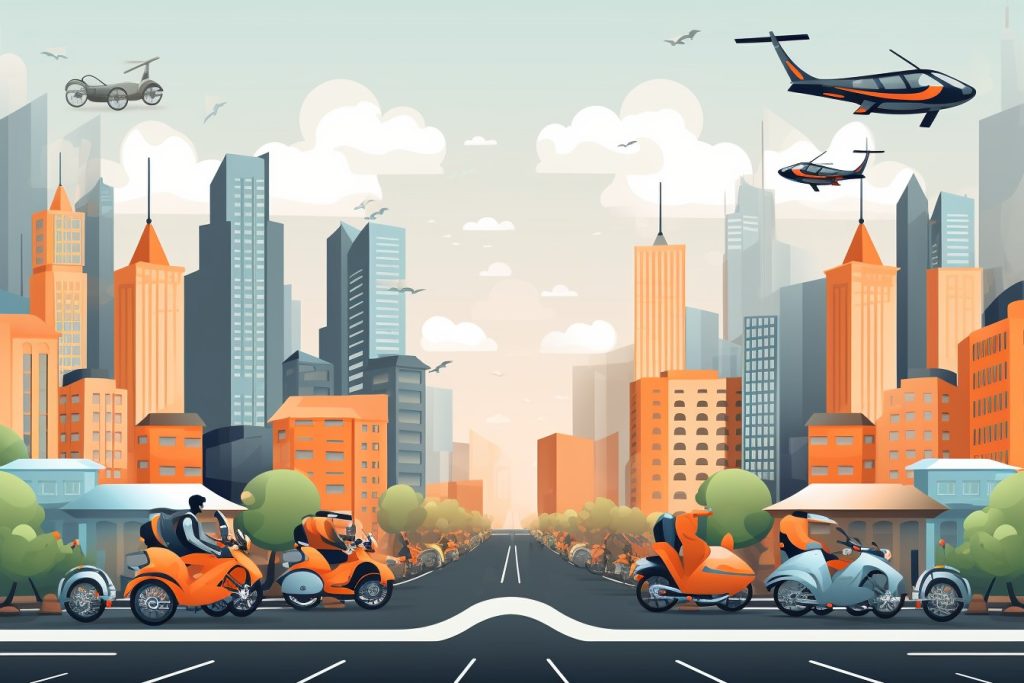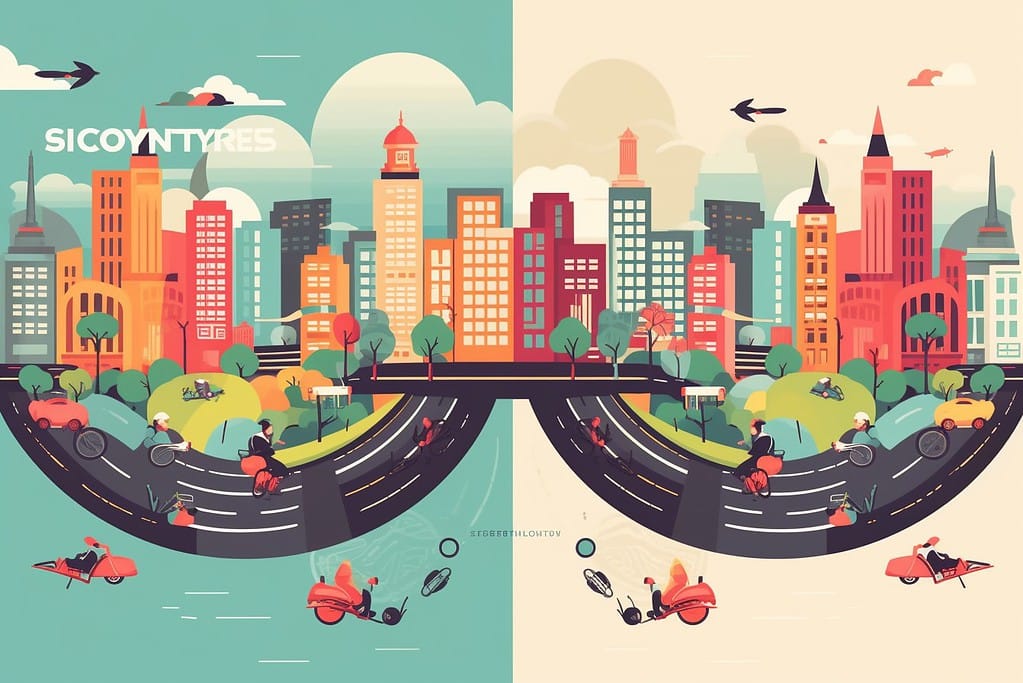Bike and scooter sharing programs have emerged as innovative solutions to the growing need for sustainable urban transportation. These programs offer shared fleets of bicycles or electric scooters that users can rent for short periods, often via a smartphone app.
Notable examples include Lime, Bird, and Jump. This essay will explore the challenges and benefits of such programs, focusing on safety concerns for riders and pedestrians and cost and accessibility for users.
Impact on Traffic Congestion and Air Pollution
Bike and scooter sharing programs have shown promising results in reducing urban traffic congestion and air pollution. By providing an alternative to personal vehicles, these programs encourage using more environmentally friendly modes of transportation. Some key benefits include:
- Reduced traffic congestion: As more people opt for bikes and scooters, fewer cars are on the road, easing traffic congestion.
- Decreased air pollution: Bikes and electric scooters produce no direct emissions, improving urban air.
- Promotion of active transportation: Encouraging the use of bikes and scooters fosters a culture of active transportation, promoting public health and reducing reliance on fossil fuels.
Challenges and Limitations
Despite their potential benefits, bike, and scooter sharing programs face several challenges and limitations in urban areas:
- Safety concerns for riders: Lack of proper infrastructure, such as dedicated bike lanes, can result in accidents involving riders and vehicles.
- Safety concerns for pedestrians: Bikes and scooters left on sidewalks or used inappropriately can pose hazards to pedestrians, especially those with limited mobility or visual impairments.
- Cost and accessibility: While these programs aim to provide affordable transportation, the cost may still be prohibitive for some users, and accessibility can be limited in certain areas or for individuals with disabilities.
- Vandalism and theft: Shared bikes and scooters are susceptible to theft and vandalism, increasing maintenance costs and reducing service availability.
Economic and Social Benefits
Bike and scooter sharing programs offer several economic and social benefits to urban areas and their inhabitants:
- Job creation: These programs create operations, maintenance, and customer service jobs.
- Local economic stimulation: By making it easier for people to explore their city, bike, and scooter sharing programs can increase foot traffic to local businesses.
- Equitable transportation: If implemented with affordability and accessibility in mind, these programs can help bridge the transportation gap in underserved communities.
- Increased social interaction: Encouraging active transportation promotes more face-to-face interactions, fostering a sense of community and social cohesion.
Recommendations for Improvement
To address the challenges and further enhance the benefits of bike and scooter sharing programs, the following recommendations can be considered:
- Developing proper infrastructure: Cities should invest in creating dedicated bike lanes and scooter-friendly infrastructure to improve safety for both riders and pedestrians.
- Implementing clear regulations: Establishing and enforcing regulations regarding responsible use, parking, and riding areas can minimize safety hazards for all users.
- Promoting accessibility: Operators should ensure that bikes and scooters are available in various neighborhoods and consider offering adaptive equipment for individuals with disabilities.
- Subsidizing costs for low-income users: Collaborating with local governments to subsidize membership fees or usage costs can make these programs more accessible.
- Educating users: Providing educational resources on proper riding techniques, etiquette, and safety precautions can encourage responsible use and foster a positive image for bike and scooter sharing programs.
Conclusion
Bike and scooter sharing programs hold significant potential in promoting sustainable urban transportation. While they offer numerous economic, social, and environmental benefits, safety concerns and accessibility issues must be addressed.
By implementing the recommendations outlined above, cities can maximize the positive impact of these programs and create a more sustainable, connected, and inclusive urban environment.









